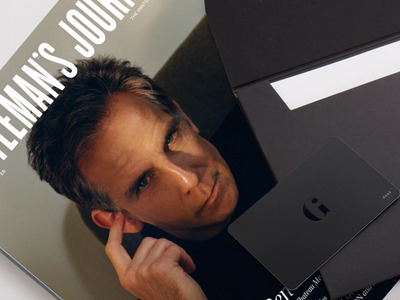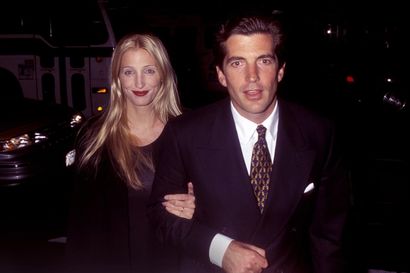We’ve now been out of the EU for a full week and – well – to be honest not much has changed. But, as last week’s departure was largely symbolic, this is to be expected – the UK is, after all, still within the customs union. Now the hard work of actually hashing out a trade agreement begins – read on for all the latest on this, the Labour leadership race and everything else you need to know from the past week in Westminster.
Contrasting visions for Brexit
Talks between the EU and the UK cannot begin in earnest until all EU member states agree unanimously on their position – a process which is expected to take until March – but that hasn’t stopped ministers on both sides hinting at what they’ll be asking for when negotiations do begin.
On the British side, Johnson has reiterated his desire for a Canada-style free trade agreement. This would largely resemble the UK’s current tariff-free deal with the EU but, crucially, does not cover services, which make up a large portion of the UK’s dealings with the EU. However, in a speech on Monday the PM said he would rather accept a deal which included tariffs on goods than accept any form of alignment with Brussels regulations or oversight by the European courts.
This signals a hard line vision of Brexit that is in stark contrast with the EU’s preferred deal. Also speaking on Monday, the EU’s chief trade negotiator Michel Barnier described an agreement where the EU and the UK would maintain a level playing field. A document leaked later in the week detailed demands that the UK would have to be ‘dynamically aligned’ to European rules and standards on issues including workers’ rights, environmental protection, state aid, competition, and consumer protection.
In his speech Barnier pointed to the text of a political declaration in which both sides committed to avoiding any form of unfair competitive advantage. Understandably, the EU fears that granting the UK a free trade deal with no caveats on competition is likely to result in the UK undercutting the continent on industries such as steel, aerospace and motoring. However, Johnson’s continued insistence that gaining a Canada-style agreement shouldn’t mean the UK following any form of EU regulation prompted senior German MPs – who will take over the European presidency later this year – to express concern that a breakdown of negotiations may become a significant possibility, leading to a no deal eventuality on 31 December.
The latest from the Labour leadership race
There are currently three candidates in the running to become the next leader of the Labour party: Keir Starmer, Lisa Nandy and Rebecca Long-Bailey. The last remaining nominee, Emily Thornberry, spent this week making a last ditch plea to Labour unions and groups to back her – if she does not find adequate support by 14 February she will not make it on to the ballot.
With their names firmly on the voting slip, Starmer, Nandy and Long-Bailey have been using this crucial pre-election time to set out their vision for the party. Here’s where they stand:
Keir Starmer, A prominent Labour front bencher, Starmer is the favourite to take the party’s top spot and is running on a platform of rebuilding trust in the party while continuing its fight against poverty, inequality and injustice. He has used recent speeches to advocate for an overhaul of the Tory’s universal credit system in a bid to protect domestic abuse victims, continued commitment to anti-austerity measures and a new open selection process for Labour ministerial candidates.
Lisa Nandy, The Wigan MP believes the key to Labour success lies in regaining support in form party heartlands like Workington and Wrexham – communities which were largely responsible for the large Tory majority in the 2019 election. She too supports reform of universal credit and an open candidate selection process, as well as giving local councillors a larger say in national party direction and a potential denationalisation of the railways.
Rebecca Long-Bailey, Currently polling in second place, the shadow business secretary falls very much within the Corbyn mode. She believes the party needs a socialist leader and strongly rejects a return to the ‘Tory lite’ agenda which she believes held the party back for many years. Her recent speeches have focused on giving workers the right to ignore emails and calls from work after hours while also standing firm on the policies set out in Labour’s 2019 manifesto, insisting they were simply badly explained during the election.
The best of the rest
In a side bar that one might have hoped we’d all have grown out of by 2020, a furore erupted in the House of Commons this week when MP Tracy Babin appeared in the house wearing a black dress which revealed her shoulder when she was forced to lean on the despatch box during a speech due to a broken ankle. As a result, Brabin reported receiving a slew of abuse on social media including being called ‘a slag, hungover, a tart, about to breastfeed, a slapper and drunk’. However, the incident led to the ASOS dress selling out on the retailers website, prompting Brabin to auction hers on eBay with all proceeds to be donated to Girlguiding UK.
Elsewhere Tory MP Daniel Kawczynski was told by the party that his appearance at a far right event in Italy was unacceptable while experts have sounded the alarm over Johnson’s proposed plan to ‘level up’ the UK, saying he would need two full terms as Prime Minister to come anywhere close to meeting his targets.
Finally, it seems likely that Johnson’s long-awaited full Cabinet reshuffle will take place next week. Check back on Friday for all the news you need to know.
Brexit has happened – it’s time to brush up on the best British brands.
Join the Gentleman’s Journal Clubhouse here.

Become a Gentleman’s Journal Member?
Like the Gentleman’s Journal? Why not join the Clubhouse, a special kind of private club where members receive offers and experiences from hand-picked, premium brands. You will also receive invites to exclusive events, the quarterly print magazine delivered directly to your door and your own membership card.


